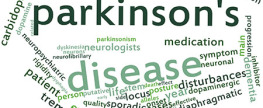
Parkinson’s Disease (PD) is a neurological movement disorder that happens when certain brain neurons become impaired and can no longer produce dopamine. Dopamine is a chemical that is important for relaying messages between different parts of the brain to help control movements in the body. This is what allows people to have smooth movements. Parkinson effects are not noticeable until 60 – 80% of the cells that produce dopamine are compromised. In the United States, as many as one million people live with Parkinson’s Disease, and there are 60,000 new cases diagnosed every year. Parkinson’s tends to impact senior citizens the most, with almost 1% of Americans over the age of 65 experiencing some form of the disease. About 4% of those with the disease are younger than 50. This can be a difficult diagnosis at any age. There is a specific website for young-onset Parkinson’s which is quite helpful. Early diagnosis of PD is important, so that its progression can be stopped or slowed. It is important to watch for the following changes: Tremors or shaking of limbs, fingers, chin or other body parts. These movements can be normal after heavy exercise or an injury. Handwriting changes, often becoming smaller or more crowded. This tends to happen more suddenly than age related handwriting changes. Loss of smell, especially that of foods like bananas, licorice or pickles. This is not the type of smelling loss associated with colds or flu, but is more persistent. Trouble sleeping because of sudden movements or thrashing around in bed. Trouble moving or walking, because of stiffness in your body, arms, or legs. Change in coordination and balance. This is not the type associated with an injury or arthritis. Constipation, and straining to move your bowels every day. If...



